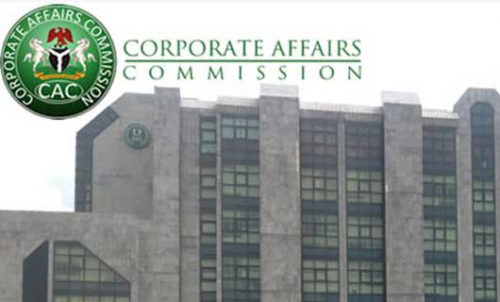COURTROOM NEWS 28/03/2022
CAMA: Court Fixes June 20 For Hearing CAN’s Suit Against CAC

A Federal High Court, Abuja on Monday slated June 20, 2022 for hearing in a suit filed by the Christian Association of Nigeria (CAN) against the Corporate Affairs Commission (CAC) and the Minister of Industry, Trade and Investment.
Justice Inyang Ekwo, handling the matter fixed the date after counsel to the plaintiff, Joe Kyari Gadzama (SAN) informed the court that all the court processes, including the Originating Summons have been filed and served on the defendants.
The senior lawyer prayed the court for a date for adoption of the processes filed.
Counsel to the first defendant (CAC), Jibrin Okutepa (SAN) also informed the court that he had filed a notice of Preliminary Objection to the plaintiff’s Originating Summons and a written address.
After hearing the submissions of counsel in the matter, except the second defendant, Minister of Industry, Trade and Investment, which was not represented in court, Justice Ekwo adjourned the matter till June 20 for hearing of both the Preliminary Objection and the substantive matter.
The Judge also ordered that hearing notice be served on the second defendant to make representation in court on the matter.
The Association, in its Originating Summons marked: FHC/ABJ/CS/84/2022, wants the court to determine, “Whether Section 839, subsections (1), (7) (a) and (10) of the Companies and Allied Matters Act (CAMA), 2020 and regulations 28-30 of the Companies Regulations (CRs), 2021 are inconsistent with Sections 4(8), 6(6)(b) and 40 of the 1999 Constitution of the Federal Republic of Nigeria (as amended) which guarantees the plaintiff’s right to freedom of association and the right to seek redress in court.
“Whether the provision of Section 854 of the CAMA is inconsistent with Section 39 of the constitution which guarantees the right to freedom of expression.
“Whether sections 842 (1) and (2) and 843 of the CAMA are inconsistent with sections 37 and 44 of the constitution which guarantees the right to privacy and compulsory acquisition and whether sections 839(1), (7)(a) and (10), section 842(1), (2), sections843, 851 and 854 are inconsistent with section 251(1)(e) and (3) of the CFRN and thus unconditional, null and void, among others.
Part of the reliefs sought by the plaintiff include “A declaration that Section 839(1), (7) (a) and (10) of the CAMA and sections 28-30 of the are inconsistent with Section 40 of the constitution and thus unconstitutional, null and void.
“A declaration that Section 839(1), (7) (a) and (10) of the CAMA are inconsistent with Section 4(8) of the constitution and thus unconstitutional, null and void.
“A declaration that Section 839(1) and (7) (a) of the CAMA and regulations 28-30 of the constitution have a direct effect on the judicial power of the Federal High Court under Section 6(6) (b) of the constitution and is therefore void.
“An order striking down Sections 839(1), (7) (a) and (10), 842(1) and (2), 843, 851 and 854 of the CAMA for being unconstitutional.
“A declaration that Section 17(2) (a) and (d) of the CAMA demand an impossible and impracticable action; thus, void and for being impracticable and unknown to Law.”
The plaintiff also want an order of perpetual injunction restraining and barring the defendants, whether acting by themselves or through any of their agents, privies, proxies, affiliates, subsidiaries or any person or entity whatsoever from doing or carrying out any act or making any pronouncement or talking any step to give effect t or implementing and/continuing with any act to implement the provisions of sections 17(2) (a) and (d), 839(1), 842(1) and (2), 842(1) and (2), 842, 843, 851 and 854 of the CAMA against it or it’s agents as mentioned in Article 4 of its constitution, to prevent further contravention of the provisions of sections 4(8), 6(6)(b), 251(1)(e) and 251(3) of the 1999 Constitution.
The plaintiff, in an affidavit averred that if CAC is allowed to suspend its Trustees and appoint interim managers to manage its affairs, it will be usurping its powers under the constitution and the powers of the standing committee and the plenary session which would not be in line with the constitution.
The CAC had, in its Preliminary Objections, opposed the suit filed against it by CAN.
It argued that “The Registered Trustees of the Christian Association of Nigeria;” as a non-juristic person, was unknown to law to institute and maintain the action.
“The plaintiff is not an entity registered under the Companies and Allied Matters Act and not one otherwise recognised as being vested with statutory rights of incorporation and bereft of the requisite locus standi, legal capacity or competence to sue and maintain this action against the 1st defendant.



